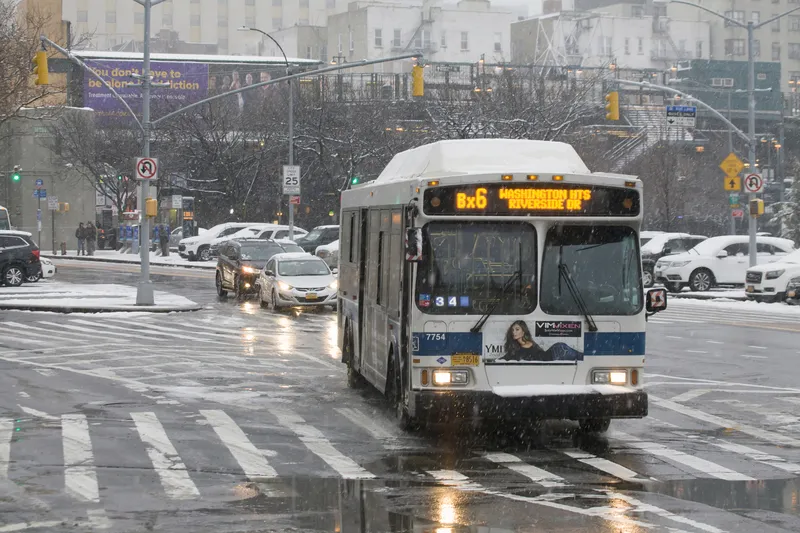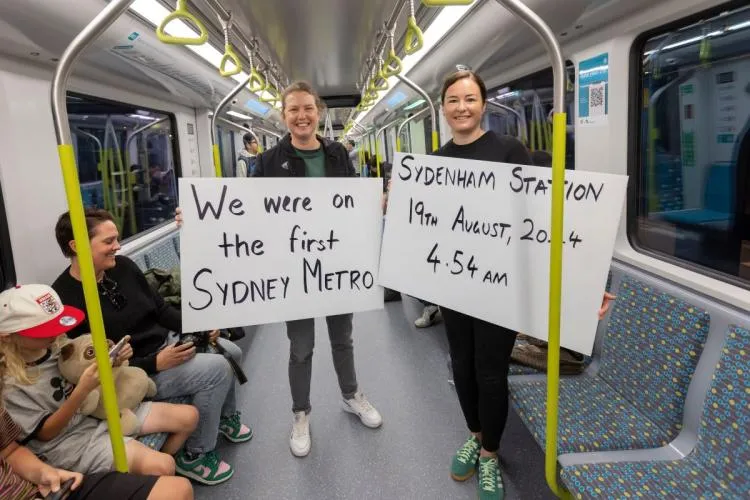
New York's Metropolitan Transportation Authority (MTA) says its redesign of local bus services in the Bronx borough of the city has been successful.
Last year, MTA modified 13 routes, implemented two new ones and increased frequency on eight corridors for 10 routes.
"The redesign streamlined trips with more direct routing that took advantage of transit priority street designs, adjusted closely distanced bus stops, and allowed the MTA to effectively redistribute resources to meet real-time travel patterns of current and future bus customers," MTA insists.
Travel time savings have been among the key measures of success, and MTA has deployed bus lane enforcement cameras on three Bronx bus routes: Bx12 SBS, Bx41 and the Bx19.
"The Bronx Local Bus Network Redesign is off to a successful start, showing solid improvements in every measure of bus performance,” said NYC Transit president Richard Davey. “The overhaul of the bus networks is a key component of the Faster, Cleaner and Safer Plan to improve service delivery and increase customer satisfaction."
NYC Transit senior vice president of buses Frank Annicaro explains: “The Bronx had one of the slowest bus speeds in the city and is now outperforming citywide trends in Customer Journey Time Performance, which measures the percentage of trips that are completed within five minutes of the scheduled time."
MTA says Central Bronx crosstown route changes have provided significant improvements in travel time providing quicker, more direct access to opportunities across the borough and into northern Manhattan, with some customers saving 60-70% - or 5-7 minutes - of their travel time on some parts of the route.
Overall, the 13 modified routes saw an improvement in average speeds. Weekday speeds on these routes are 4% faster, and morning peak weekday speeds are up 5%, outperforming the system average by 7%. Customer satisfaction is up slightly.
Bronx borough president Vanessa L. Gibson says: “With a large segment of our population living in transportation deserts, which can increase their commute time by as much as an hour, we saw travel time along several routes decrease by as much as 40%. This is a significant win for our borough and the thousands of Bronx riders that rely on our buses to get to their destination."
New York City DoT commissioner Ydanis Rodriguez says: "We are committed to transit equity and to ensuring that Bronx residents have access to high-quality mass transit, reducing both congestion and emissions. We’re proud to have partnered with MTA on the Bronx Local Bus Network redesign and look forward to more great projects to come.”
State senator Nathalia Fernandez cautioned: "It is important not to rest on our laurels because there is still a lot of work to be done. Boroughwide and citywide increases are truly great, but we still have to make sure we are addressing the hyper-local issues, particularly those that are affecting our seniors and many others who have had their regular stops moved and are now burdened with longer and more strenuous commutes."








